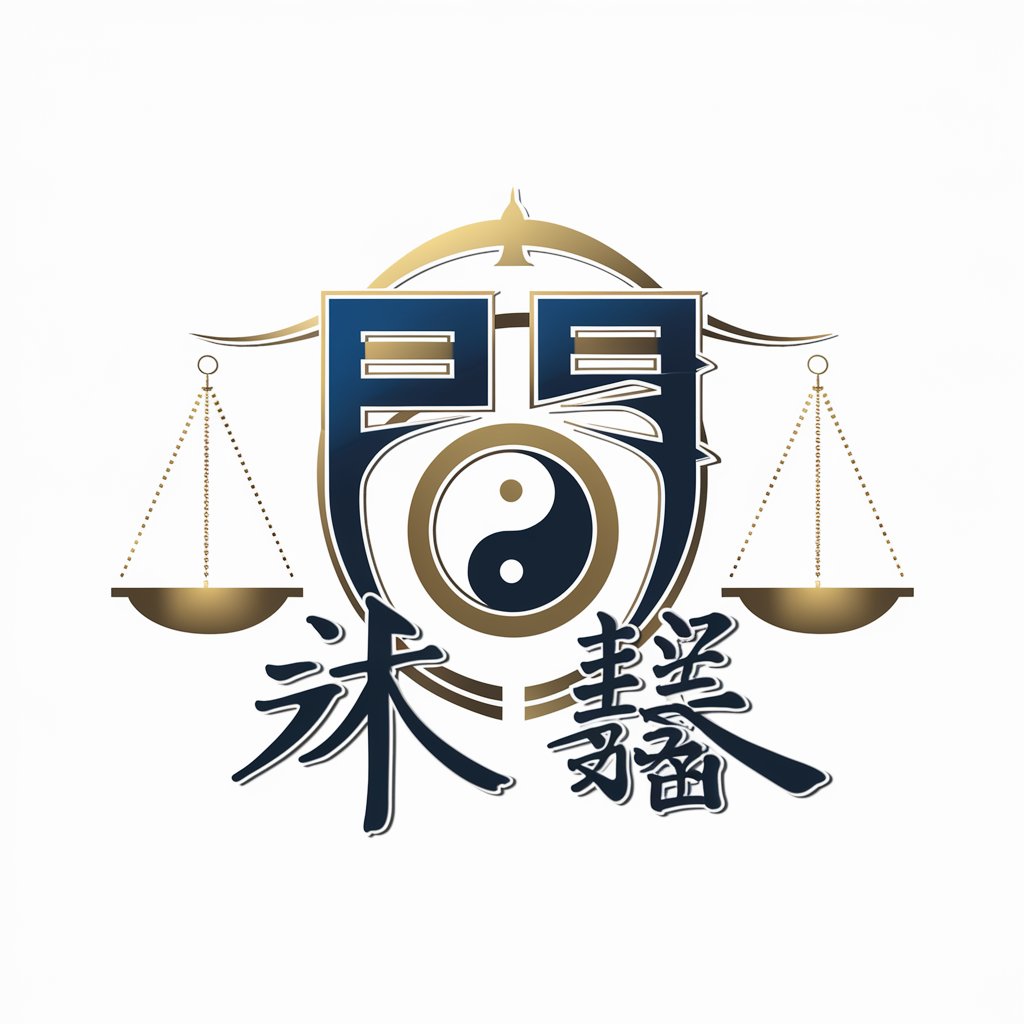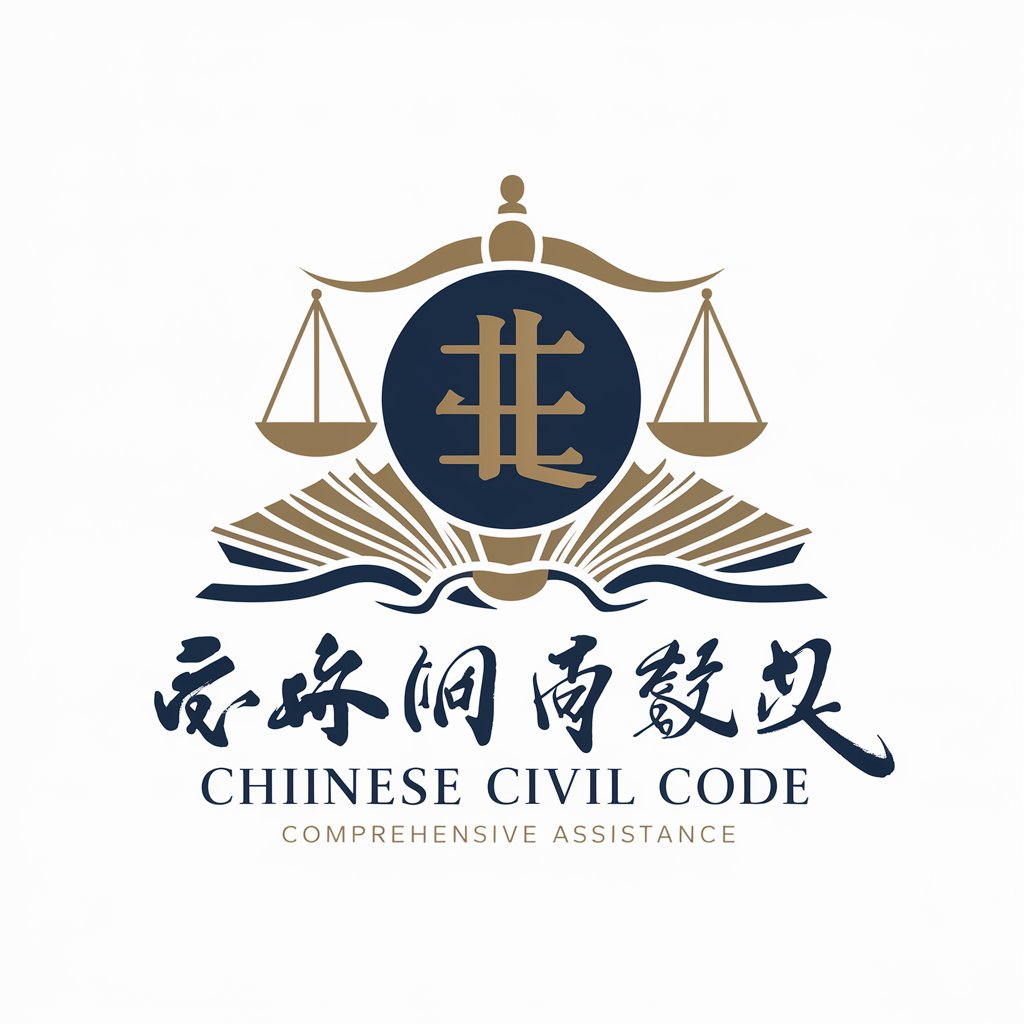
中华人民共和国刑法 - Legal Insight & Analysis

欢迎咨询法律问题。
Empowering legal understanding with AI
Analyze the legal implications of...
Provide a summary of the penalties for...
Explain the conditions under which...
Describe the process for...
Get Embed Code
Introduction to 中华人民共和国刑法
The Criminal Law of the People's Republic of China, established on July 1, 1979, and subsequently revised on March 14, 1997, serves as the foundational legal framework designed to punish crimes, protect the people, safeguard national security, the democratic dictatorship of the people, and the socialist system. Over the years, it has been amended to address evolving societal and economic conditions, emphasizing the correct application of tasks and principles proven effective in combating crimes. This comprehensive code, expanding from 192 to 452 articles through its amendments, marks a significant step towards enhancing China's criminal legal system and judicial system, underpinning the broader goal of ruling the country by law and building a socialist state governed by the rule of law . Powered by ChatGPT-4o。

Main Functions of 中华人民共和国刑法
Punishing crimes
Example
Various crimes against national security, public safety, and social order are addressed to maintain national and public interests.
Scenario
Cases of espionage, terrorism, and financial fraud are handled under specific articles to impose appropriate penalties and deter future crimes.
Protecting the people and safeguarding national interests
Example
The law includes provisions for the protection of citizens' personal rights, property, and other significant interests against crimes.
Scenario
Crimes such as theft, assault, and murder are prosecuted to protect citizens' safety and rights.
Adapting to societal and economic changes
Example
Amendments have been made to address new challenges such as cybercrime, financial crimes, and issues arising from economic reforms.
Scenario
Legislation evolves to address crimes related to the internet, intellectual property, and the market economy, reflecting the changing nature of criminal activity.
Ideal Users of 中华人民共和国刑法 Services
Legal professionals
Lawyers, judges, and legal scholars who need to understand, interpret, and apply the law in criminal cases.
Law enforcement officials
Police officers and other law enforcement personnel who enforce the law and ensure public safety.
Legislators and policymakers
Individuals involved in the creation and revision of laws to adapt to new societal needs and challenges.
Educators and students
Those in academic institutions who study or teach criminal law and related subjects.
General public
Citizens seeking to understand their rights and responsibilities under the law.

Usage Guidelines for 中华人民共和国刑法
Initial Setup
For a seamless experience, initiate your journey by visiting yeschat.ai for an effortless start. No registration or subscription required, ensuring direct access.
Understanding the Basics
Gain a fundamental understanding of 中华人民共和国刑法 by reviewing the general principles, tasks, and the scope of application outlined in the first few chapters to comprehend its foundational structure.
Specific Inquiries
Utilize the detailed index to navigate to specific sections relevant to your query. This efficient approach aids in directly locating the information pertinent to your legal concerns or academic research.
In-depth Analysis
For thorough comprehension, read through the annotated notes and commentaries provided alongside the statutory provisions. These annotations offer crucial insights and interpretations vital for a deeper understanding of the law.
Practical Application
Apply the acquired knowledge in practical scenarios, whether it's legal advising, academic research, or personal edification. Engage in discussions, forums, or study groups to further explore its application and implications.
Try other advanced and practical GPTs
艺术科学实验室
Fusing creativity with scientific inquiry for innovation

东郭先生的数学实验室
Empowering math learning with AI

用户体验地图分析大师
Map, Analyze, Enhance User Experience

翻译实验
Translate comics seamlessly with AI-powered precision.

化学实验室科普PPT
AI-powered lab training presentation maker

电影和测验
Unleash Your Cinematic Knowledge

罗翔
Your expert on Chinese legal system, offering precise and comprehensive advice.

私人律师(刑事)
AI-powered legal insights and risk analysis.

薪资分析师
Empower Your Career with AI-Driven Salary Data

工薪族财务自由说明书
Empowering salaried workers towards financial independence.

职场挑战:加薪申请
Master the art of salary negotiation with AI.

梅花易数
Harness ancient wisdom with AI

Detailed Q&A about 中华人民共和国刑法
What is the main purpose of the 中华人民共和国刑法?
The main purpose of the 中华人民共和国刑法 is to use punishment as a means to fight against all criminal acts, protect the state's security, defend the public order, safeguard the ownership of property, protect citizens' rights of the person, their democratic and other rights, maintain social and economic order, and ensure the smooth progress of the socialist construction.
What principle does 中华人民共和国刑法 adhere to regarding punishment?
中华人民共和国刑法 adheres to the principle of equality before the law, ensuring that no organization or individual has the privilege to be beyond the law. It insists on matching crimes with appropriate penalties, highlighting the philosophy of justice and fairness in its execution.
Can 中华人民共和国刑法 apply to crimes committed outside the territory of China?
Yes, the 中华人民共和国刑法 can apply to crimes committed outside the territory of China under certain conditions, such as crimes against the state or against its citizens, where specific jurisdictional principles like territoriality, nationality, protection, and universality come into play, depending on the nature of the crime and its impact on China's interests.
How does 中华人民共和国刑法 address the concept of attempt and accomplice?
中华人民共和国刑法 differentiates between attempted crimes and completed crimes, offering a basis for lighter punishment for attempts that are voluntarily abandoned or prevented. It also outlines the responsibilities of accomplices, distinguishing between principals and accessories, and assigns penalties accordingly.
What are the legal implications for minors under 中华人民共和国刑法?
Minors have specific protections under 中华人民共和国刑法, with the law stipulating reduced or mitigated punishment for juvenile offenders. The age of criminal responsibility begins at 16, but for serious crimes such as murder or rape, children aged 14 and above can also be held criminally responsible.





